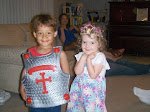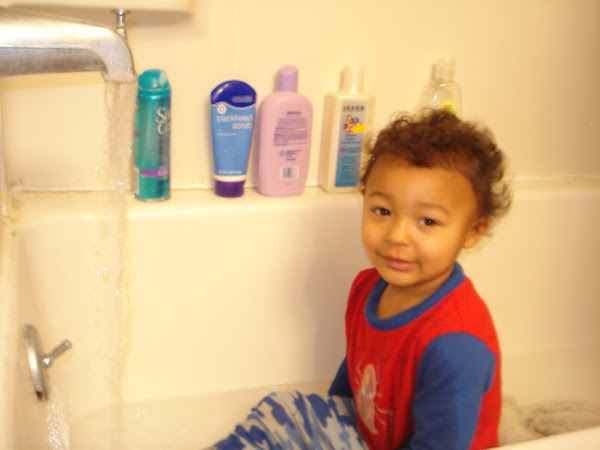by Ruth Beechick
Public schools have multiplied subjects over the years. They continually move subjects to lower and lower grades. They break apart a subject into bits and name each bit as a separate subject. Language is the worst victim of this treatment. They spread writing, for instance, through classes on penmanship, grammar, vocabulary, spelling, creative writing, and more. Reading, likewise.
Public schools have multiplied subjects over the years. They continually move subjects to lower and lower grades. They break apart a subject into bits and name each bit as a separate subject. Language is the worst victim of this treatment. They spread writing, for instance, through classes on penmanship, grammar, vocabulary, spelling, creative writing, and more. Reading, likewise.
A smart homeschooler wrote on her blog, “For reading we read and for writing we write.” How commonsensical! Homeschoolers don’t need to follow the artificial school pattern. They can be more realistic.
Plenty of research shows there is no correlation between knowledge of grammar and ability to write. Grammar in the lower grades is one of those subjects that schools push down to lower grades. It clutters the curriculum. It repeats every year. It’s boring, and it does not help writing at all. The best place for grammar is somewhere in the teen years after a student writes quite well. That educates him more about our language, and it may help now and then with an editing problem.
Reading and life activities are natural ways to build vocabulary. Children add thousands of words per year to their usable vocabulary. You couldn’t match that with vocabulary lessons if you tried. Mostly you would waste time. A lesson might ask the child to look up a word in a dictionary, to copy the definition, and to use the word in a sentence. The words are isolated from the child’s life, she is bored with the assignments, and she does not end up using the words in her speech or writing.
Insofar as creative writing means to set a child down with an empty mind and empty sheet of paper, forget it.
Writing is not learned step-by-step, day-by-day. It grows gradually with use, in the same way children learned to speak in their early years. You don’t need to grade writing each day or each week. Just provide opportunities to write and be an appreciative audience. Then watch improvement happen across the months. Think of writing as a skill to use in all subjects and not as a daily “class” of its own.
“For writing we write” is a great motto for simplifying and strengthening language teaching.
©2009 Homeschooling Today magazine, Nehemiah Four, LLC
A smart homeschooler wrote on her blog, “For reading we read and for writing we write.” How commonsensical! Homeschoolers don’t need to follow the artificial school pattern. They can be more realistic.
Spelling
Let’s say you are writing a letter to the editor in which you want no mistakes. You come to the word restaurant and you’re not sure about the spelling, especially the middle syllable, so you check a dictionary and get it right. Checking a dictionary is a real-life spelling skill or habit your child needs to learn. Memorizing twenty words on a list is not real life. It is school busywork. Homeschoolers who understand this pass up the books with weekly spelling lists. In middle grades, they may study a book that teaches some advanced phonics or complexities of English spelling. They may use short five- or six-word lists of words the child uses and misspells. Most of all they teach the habit of checking on a word in their writing they are unsure of. That helps them for life, as twenty-word lists do not.Penmanship
Focus on handwriting when children are first learning manuscript (printing) and again when they learn cursive. Switching to cursive takes about three weeks if you wait until a child is good at manuscript—usually sometime in third grade. Keep a model alphabet in sight on a wall or desk for as long as children refer to it. You could emphasize good penmanship in combination with some other writing goal, but forget six or more years of daily penmanship “class.” Hold a crash course when needed to improve sloppy writing. Working on uniform slant and uniform height will usually help.Grammar
By school age, children speak mostly correct grammar if the people around them do. Therefore, the best way to fix a sentence that needs fixing is to read it aloud to the child. He can hear what’s wrong and fix it.Plenty of research shows there is no correlation between knowledge of grammar and ability to write. Grammar in the lower grades is one of those subjects that schools push down to lower grades. It clutters the curriculum. It repeats every year. It’s boring, and it does not help writing at all. The best place for grammar is somewhere in the teen years after a student writes quite well. That educates him more about our language, and it may help now and then with an editing problem.
Vocabulary
If your violin-playing daughter joins an orchestra, she may quickly learn that a viola and cello are different from her violin. She will learn many instrument names new to her and group names such as woodwinds, brasses, and percussion. If she reads about horses, her vocabulary stretches in another direction.Reading and life activities are natural ways to build vocabulary. Children add thousands of words per year to their usable vocabulary. You couldn’t match that with vocabulary lessons if you tried. Mostly you would waste time. A lesson might ask the child to look up a word in a dictionary, to copy the definition, and to use the word in a sentence. The words are isolated from the child’s life, she is bored with the assignments, and she does not end up using the words in her speech or writing.
Creative Writing
I am never sure what people mean by creative writing. Some may mean that a child makes up a story rather than writing a report on a science topic. But fiction writers read lots of fiction and build their stories out of ideas already fed into their minds. C. S. Lewis furnished his mind with the writings of George MacDonald and others, and he said his stories came out of the “furniture” of his mind. The science report must do the same, and it is creative writing as the student tries to summarize or clarify for his readers what happened in the experiment or the book.Insofar as creative writing means to set a child down with an empty mind and empty sheet of paper, forget it.
Writing
You can, in general, omit a writing class much of the time. If a child writes a report for science, answers some questions in history, or maybe pens or e-mails a letter to Grandpa, he has done writing; you do not need to add a writing class to clutter his schedule. If you own some writing curriculum, the best way to use most of it is to choose lessons that look interesting and useful to you and use them on days when you have time for more writing. Certain lessons on how an essay is organized or tips for plotting a story can prove useful.Writing is not learned step-by-step, day-by-day. It grows gradually with use, in the same way children learned to speak in their early years. You don’t need to grade writing each day or each week. Just provide opportunities to write and be an appreciative audience. Then watch improvement happen across the months. Think of writing as a skill to use in all subjects and not as a daily “class” of its own.
“For writing we write” is a great motto for simplifying and strengthening language teaching.
©2009 Homeschooling Today magazine, Nehemiah Four, LLC























I love this article because it is sooo easy for me to become overwhelmed with all the different subjects and demands of teaching as it is! I need reminded often to take it easy and not stress so much over teaching. So I took an early spring break to begin to enjoy my boys more and focus on making life and school fun!
ReplyDelete